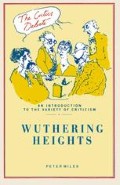Abstract
Throughout its history of debate, Wuthering Heights has attracted such epithets as ‘extraordinary’ and ‘astonishing’. Such words also figure in a frequently perceived paradox turning upon the assumed uneventfulness, isolation and cultural deprivation of Emily Brontë’s life as contrasted with the dynamism of her writing. For 140 years, as her most recent (and most judicious) biographer phrases it, the persistent question has been: ‘How could a young woman without much formal education and with little experience of life produce such an extraordinary work as Wuthering Heights?’ [Chitham, 1987, p. 1]. Paradoxes, however, may be most compelling for their ideological assumptions, in this case concerning the relationships of gender, class and region to the production of valued writing (‘young woman’ /‘formal education’/‘little experience of life’) [see Eagleton, 1983]. As phrased, the question can arise out of an appreciation of the historical factors inhibiting the formation of writers within specific social groups, but, presented as a paradox to be wondered at, it may also imply an outlook assuming that ‘extraordinary work’ is normally produced by, say, formally educated men of some years who have seen a lot of the world.
Preview
Unable to display preview. Download preview PDF.
Copyright information
© 1990 Peter Miles
About this chapter
Cite this chapter
Miles, P. (1990). Survey. In: Wuthering Heights. The Critics Debate. Palgrave, London. https://doi.org/10.1007/978-1-349-20739-8_2
Download citation
DOI: https://doi.org/10.1007/978-1-349-20739-8_2
Publisher Name: Palgrave, London
Print ISBN: 978-0-333-38517-3
Online ISBN: 978-1-349-20739-8
eBook Packages: Palgrave Literature & Performing Arts CollectionLiterature, Cultural and Media Studies (R0)

